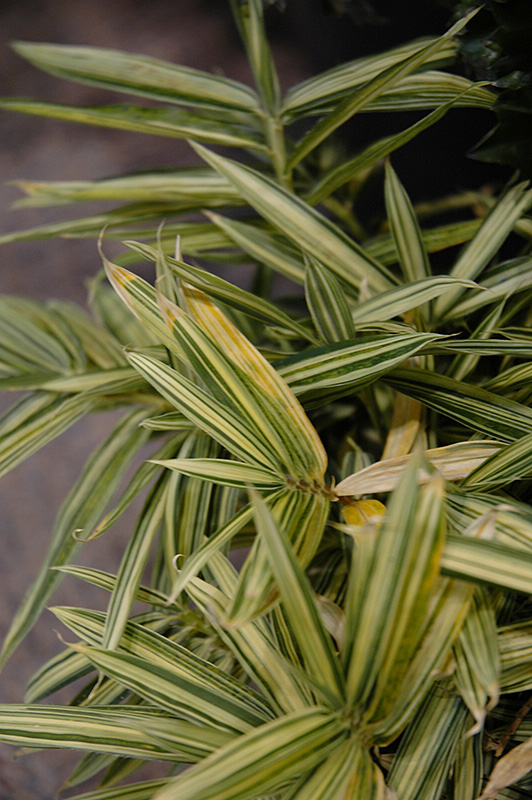>> Home
Dwarf Whitestripe Bamboo
Pleioblastus fortunei
Height: 4 feet
Spread: 4 feet
Sunlight:
![]()
![]()
Hardiness Zone: 6
Other Names: Running Bamboo
Description:
An attractive variegated green and white bamboo; this species keeps its variegation well through the summer even with strong sunlight; makes a great ground cover or creative container plant; strikingly beautiful
Ornamental Features
Dwarf Whitestripe Bamboo is primarily valued in the landscape or garden for its ornamental upright and spreading habit of growth. Its attractive glossy narrow leaves emerge light green in spring, turning green in color with prominent white stripes. As an added bonus, the foliage turns a gorgeous lemon yellow in the fall.
Landscape Attributes
Dwarf Whitestripe Bamboo is an herbaceous evergreen perennial with an upright spreading habit of growth. Its relatively fine texture sets it apart from other garden plants with less refined foliage.
This is a high maintenance plant that will require regular care and upkeep, and is best cleaned up in early spring before it resumes active growth for the season. Gardeners should be aware of the following characteristic(s) that may warrant special consideration;
- Suckering
Dwarf Whitestripe Bamboo is recommended for the following landscape applications;
- Hedges/Screening
- General Garden Use
- Groundcover
- Naturalizing And Woodland Gardens
Planting & Growing
Dwarf Whitestripe Bamboo will grow to be about 4 feet tall at maturity, with a spread of 4 feet. Its foliage tends to remain dense right to the ground, not requiring facer plants in front. It grows at a fast rate, and under ideal conditions can be expected to live for 70 years or more. As an evegreen perennial, this plant will typically keep its form and foliage year-round.
This plant does best in full sun to partial shade. It prefers to grow in average to moist conditions, and shouldn't be allowed to dry out. It is not particular as to soil type or pH. It is somewhat tolerant of urban pollution. This species is not originally from North America. It can be propagated by division.
